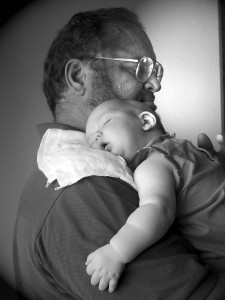 Bethel Church has this audacious conviction that we are called to make disciples who live, love and lead like Christ. For us at Bethel Church, nothing rivals this mandate. It is the primary means by which we declare God’s glory (see Psalm 96:3), and is our bold response to Jesus’ own command in Matthew 28:19-20, when he declares, “As you are going be making disciples of all nations, baptizing them in the name of the Father and of the Son and of the Holy Spirit, teaching them to obey all that I have commanded you.”
Bethel Church has this audacious conviction that we are called to make disciples who live, love and lead like Christ. For us at Bethel Church, nothing rivals this mandate. It is the primary means by which we declare God’s glory (see Psalm 96:3), and is our bold response to Jesus’ own command in Matthew 28:19-20, when he declares, “As you are going be making disciples of all nations, baptizing them in the name of the Father and of the Son and of the Holy Spirit, teaching them to obey all that I have commanded you.”
Most of us who believe in Jesus Christ can get our brains around the idea of making disciples. It seems reasonable to expect that there is value in crafting the souls of men and women so that they might look a lot like Jesus. That is our driving purpose: cultivating people so that they conform to the derived image of Jesus Christ (see Romans 8:29). The problem that arises, however, is that when we talk about living, loving and leading like Jesus we get anxious. Who can be anything like Jesus? Yes, he is 100% man, but he is also 100% God. Who can possibly actually emulate him? Why should we try?
1 Peter 2:21 motivates us to proceed. He is our example. We are to follow in his steps. The Apostle Peter makes it plain that this is non-negotiable. We are called to follow the example of Jesus, which implies being like him. With such truth in mind the question then surfaces: how?
Mark 14 is helpful here, for it gives us a unique glimpse into the life of Jesus during, of all things, a crisis; a glimpse that helps us see what it is to live, love and lead. Consider the following passage, from Mark 14:32-42:
And they went to a place called Gethsemane. And he said to his disciples, “Sit here while I pray.” And he took with him Peter and James and John, and began to be greatly distressed and troubled. And he said to them, “My soul is very sorrowful, even to death. Remain here and watch.” And going a little farther, he fell on the ground and prayed that, if it were possible, the hour might pass from him. And he said, “Abba, Father, all things are possible for you. Remove this cup from me. Yet not what I will, but what you will.” And he came and found them sleeping, and he said to Peter, “Simon, are you asleep? Could you not watch one hour? Watch and pray that you may not enter into temptation. The spirit indeed is willing, but the flesh is weak.” And again he went away and prayed, saying the same words. And again he came and found them sleeping, for their eyes were very heavy, and they did not know what to answer him. And he came the third time and said to them, “Are you still sleeping and taking your rest? It is enough; the hour has come. The Son of Man is betrayed into the hands of sinners. Rise, let us be going; see, my betrayer is at hand.”
Later posts will find us evaluating how it is that love and leadership are displayed by Jesus in this passage. For now we want to focus our attention exclusively upon verses 35 and 36 so that we might deal with how it is he lives. It is said of Jesus that he went into the garden and “fell on the ground.” The idea from the ancient language is that he is a man having a melt-down. The weight of his pending trip to Calvary is so overwhelming that he can do nothing other than collapse onto the dirt of Gethsemane, ruined and vulnerable and exposed. There is no pretense, no editing of his emotions, no managing of his image. Jesus is a man in crisis, and it is within this crisis that we see him most clearly. And what we see, therefore, is a man truly living, unincumbered by the posturing and positioning that too many of us bring upon ourselves; posturing and positioning that is really death and not life.
The reality that allows him to really live—even in the midst of the crisis—is that he is meaningfully and honestly connected to the one he refers to as Abba. Abba is his Father, the first person of the Trinity. By using the word Abba Jesus is implying that the Maker of Heaven and Earth is his own daddy, one with whom Jesus is completely and utterly safe. It is this security that allows for ultimate living. It is here where real living begins. This is life at its best, to be had by anyone who is connected to Abba.
 If any of us wish to make disciples who live like Christ, we have to first found out how Christ lived. This moment in Gethsemane is a paramount moment of real living for Jesus—utter transparency within the context of the safety which was the connection he had with Abba God. It all beings here. And, significantly, if we are to craft souls who enjoy the authenticity and security that our Heavenly Daddy provides, then we need to find ourselves being crafted as well. The first disciple that we need to invest in is always ourselves.
If any of us wish to make disciples who live like Christ, we have to first found out how Christ lived. This moment in Gethsemane is a paramount moment of real living for Jesus—utter transparency within the context of the safety which was the connection he had with Abba God. It all beings here. And, significantly, if we are to craft souls who enjoy the authenticity and security that our Heavenly Daddy provides, then we need to find ourselves being crafted as well. The first disciple that we need to invest in is always ourselves.
Of course, having any relationship with Abba only comes by means of faith in Jesus Christ. His death and resurrection deals with our uncleanness, making us to be clean. His death and resurrection deals with our shame, granting us honor. His death and resurrection deals with our guilt, allowing us to be declared righteous. And his death and resurrection deals with our fear, replacing such with power. When by faith we call out to Jesus Christ for salvation we are then united with Abba, adopted as his children, made brand new, and we enter into the freedom and joy which is real living. (By the way, any of you reading who have not yet called upon Jesus Christ for salvation ought to pause and do so right now. There is no better time!)
Matthew 6:9 introduces us to what is commonly called the Lord’s Prayer. It, of course, begins with the words “Our Father. . . .” This is a very good rendering of the Greek text, and yet it is not the best. When we have the mindset of “Our Father,” then we seemingly place ourselves in the position of being over the Father, somehow supreme to him, as if we own him and he yields to us. We talk too easily about our homes and our families and our dreams and our jobs and our education and our nation, et cetera. But a more precise translation of the Greek text is “Father of us. . . .” Suddenly the roles are clearly reversed. Primacy is clearly his. We yield to him. Now we can think in terms that talk of the Father of our homes, the Father of our families, the Father of our dreams, the Father of our jobs, the Father of our education, the Father of our nation, and so forth. It is when our world is defined by Abba that we have ultimate security, total freedom, and complete and utter joy, even when life is marked by crises. It is with Abba that we ultimately live.
All of this is to say that when we wonder how it is that Christ lives so that we may help others (and our selves!) to live like him, we find that it all begins humbly and honestly with Abba. All of our relationships, all of our priorities, all of our ambition, is shaped by that connection. Discipleship begins there.
“Write This Down…” provides a restatement of selected points or observations from various teaching venues at which Pastor Matthew speaks. The preceding material is from Pastor Matthew’s sermon entitled, “Live!,” part of the sermon series entitled, “An Audacious Conviction,” and presented on the weekend of August 14, 2011, at Bethel Church.


Comments